This week in PR (7 September)

About the author
Richard Bailey Hon FCIPR is editor of PR Academy's PR Place Insights. He teaches and assesses undergraduate, postgraduate and professional students.
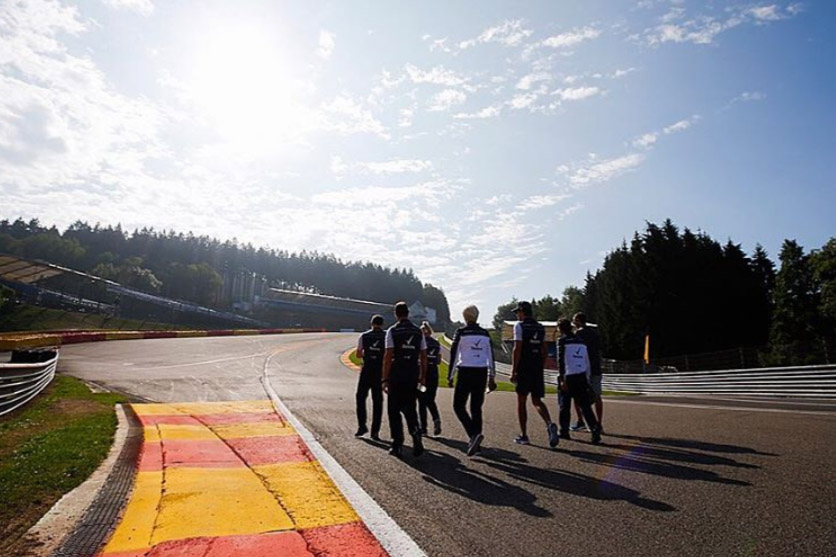
Behind the headlines
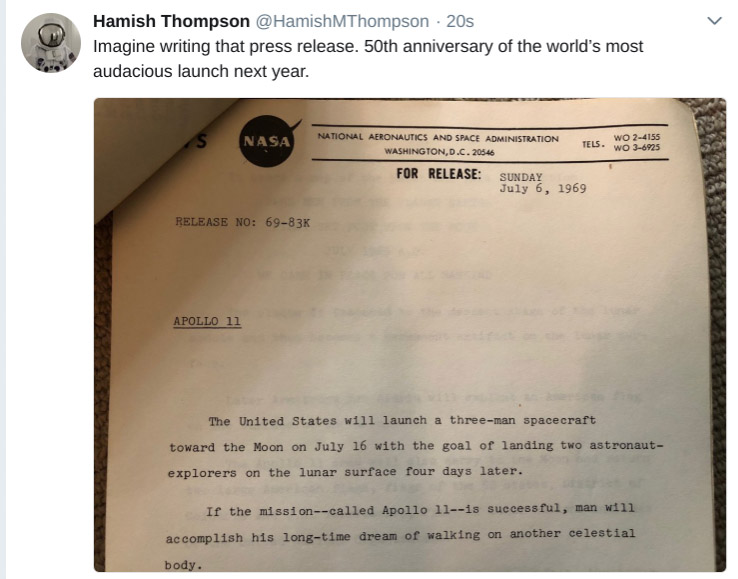
- Strange brew: this was the week in which we discussed ethics and were preoccupied by a Nike ad and a Listerine paid promotion.
- PRCA and ICCO are leading a #PowerofEthics campaign in September (designated as ‘ethics month’).
- Nominations have opened for elections to the CIPR council and presidency.
- Philip Morris UK has appointed former Burson-Marsteller CEO Amanda Pierce as its next head of communications. (Holmes Report).
- Nike’s Charlie Brooks is to be Manchester United’s new head of communication in October (PR Week).
- Mark Read has been confirmed as the new CEO of WPP (which owns Burson Cohn & Wolfe, Hill+Knowlton Strategies, Finsbury, Ogilvy and others) (Financial Times). Though WPPs revenues were down in the first half of the year, the public relations and public affairs division performed strongly (Holmes Report).
- Philip Dewhurst, a past president of the CIPR, has joined Darren Northeast PR as a non-executive director.
- BBC Radio is approaching its centenary, so it was notable that such an old form of media should dominate the media headlines on the day that Chris Evans announced his departure from Radio 2 and Eddie Mair, once of Radio 4, started at LBC.
- Google reached its 20th anniversary this week. With Google at 20 and the world wide web at 25, that means many people will never have known a world before their existence.
Academic
- The three-volume, 1868 page Encyclopedia of Strategic Communication edited by Robert Heath and Winni Johansen has been published by Wiley-Blackwell.
- For a discussion of the distinction between public relations and strategic communication, listen to the podcast with Distinguished Professor Jim Macnamara (link below).
Insights and opinions: Pick of the posts
These are the editor’s pick of posts about public relations this week (UK focused, but with a global outlook). Recommendations are welcome to editor@prplace.com or @pr_place
Consulting
- Rich Leigh: We’re *definitely* going to a 4 day work week, without cutting pay (3 September)
‘The most important question for me to answer was – ‘is this workable in a way that doesn’t impact client results?’, and for me, for the team and, most importantly, for our clients, the trial answered that emphatically and positively.’ - Natalie Sherman: Lessons from three years of running my own business…. (3 September)
‘I’m in an office, paying rent, employing staff and achieving things I didn’t even dare to dream three years ago.’
Public affairs
- Jon McLeod: Why it is time for leadership and innovation in public affairs (3 September)
‘The public affairs industry has a critical role to play, providing cool heads and innovative thinking at a time when clients most need their support. Time to move on from the navel-gazing.’
Academic
- Paul Cheal with Jim Macnamara: A Public Relations Podcast: Smoke Signal Episode 7 – Jim Macnamara Keep Learning (3 September)
‘Public relations is a cost centre. It only becomes a value-adding service when you can show outcomes and impact. So evaluation is fundamental.’
Ethics and truth
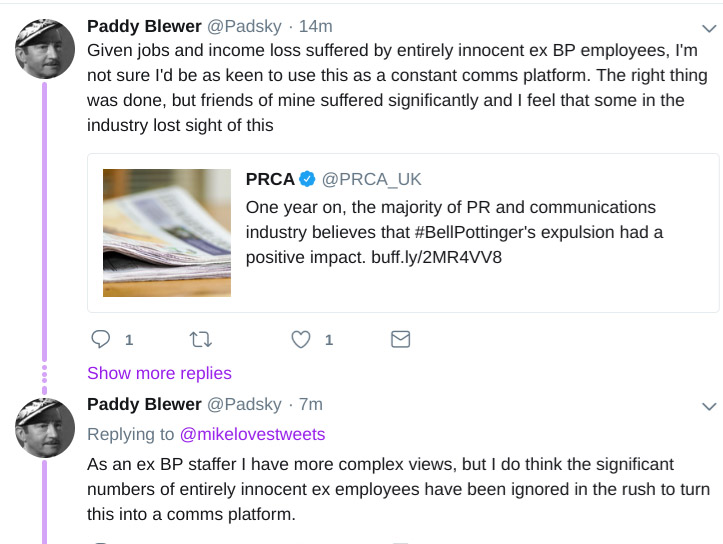
- Jennifer Sanchis: Why ethics is the future of PR (6 September)
‘The workplace landscape is evolving fast, placing the role of ethics at the epicentre of communication strategies.’ - Dan Gerrella: Book review: “Truth: How the Many Sides to Every Story Shape Our Reality” by Hector Macdonald (4 September)
‘His three rules for ethical communication are: 1) It is factually correct. 2) It is intended to achieve a constructive outcome that the audience would support. 3) It will not cause members of the audience to act in a way that harms them.’
Public and third sectors
- Darren Caveney: Launching the epic, the unique, the bestest – the one and only UnAwards (5 September)
‘It’s [about] the work which made a genuine difference, which nailed it creatively, which met its objectives, which could measure and prove its success. Or work which changed something for the better. And captured your audience’s attention in a crowded, cluttered world.’ - Molly Clarke: What could you do with 400 words? (3 September)
‘We’re inviting you to use 400 of your best words (extra appreciation if they include nitwit, blubber, oddment or tweak) to tell us about a third sector communicator who inspires you in this year’s Inspiring Communicator Awards.’
Crisis and reputation
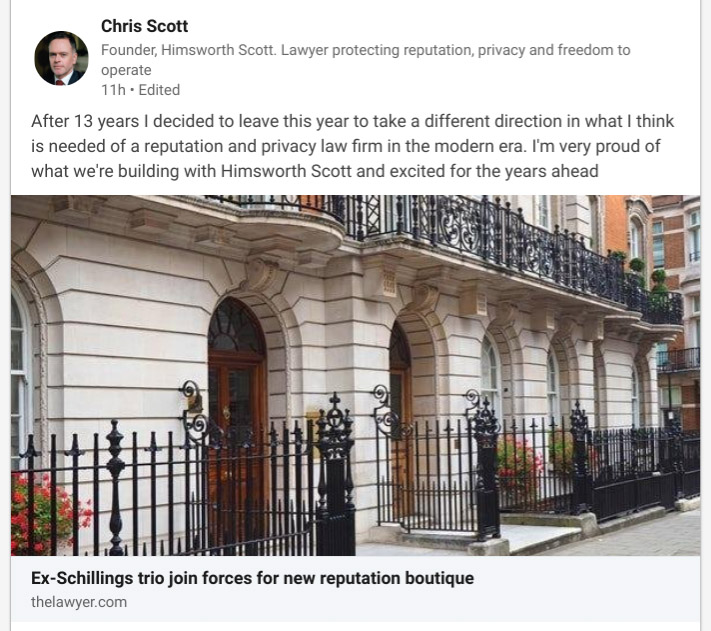
- Rebecca Roberts: University clearing: if you’ve nothing nice to say, avoid trash talking on social (1 September)
‘Considering choosing a university is akin to making a big life decision like moving house and has over 100 factors that students will consider, you’d be surprised perhaps at some of the antics this year during clearing.’ - Ann Pilkington: Crossrail – project comms, let’s ditch the positivity (31 August)
‘The announcement on their website – when you find it under “articles” – reads more like an announcement of an opening than an announcement of a delay.’
Careers and skills
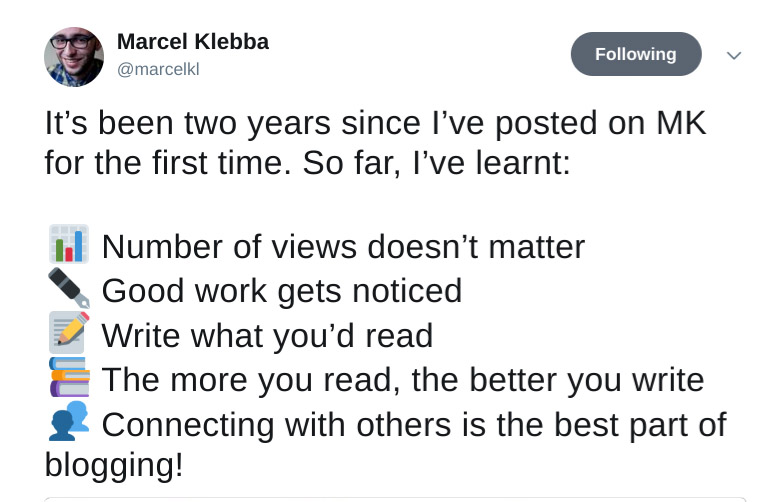
- Advita Patel: Don’t Let Anyone Dull Your Sparkle (5 September)
‘What better way to get over your confidence lull then to sign up for a course. Even if it’s only a short half day programme or a full-on masters, nothing drives up your confidence then doing some self-development.’ - Helen Reynolds: My advice for a career in communications (4 September)
‘I started as a press officer, took on more general comms roles, then I went into social media and website management, did my CIPR Diploma and got super strategic, and now I teach other communicators how creatively improve the effectiveness of their comms.’ - Dan Selinger: Student appeal: How can we attract graduates to Oxford’s PR industry? (no date)
‘There are around 30,000 students living in Oxford, so we have lots to choose from. But how does the local PR community go about snapping up the best graduates?’
Influencer marketing
- Scott Guthrie: Is effective disclosure killing influencer marketing? (6 September)
‘On the face of it the figures appear to confirm it does. But the figures point towards the perils of influencer advertising and mask the benefits of pure influencer marketing.’ - Orlagh Shanks: Instagram #Ad Case Study: Listerine (5 September)
‘I have many problems with this image, and after working in Influencer Marketing for a year, can’t quite believe that Listerine paid for this as an advertisement. So here are the issues I have with this paid-for Instagram post.’ - Laura Crimmons: How to Find the Right Influencers for Your Campaign (4 September)
‘Zoella is often hailed as one of the biggest influencers, however, her audience has historically been made up predominantly of young fans, therefore if your product is high value or luxury the chances are her followers simply won’t be able to afford it, so your money would be wasted.’
Campaigns and creativity
- David Alexander: Kaepernick’s ‘Sacrifice’ Campaign Ensures his Place in History (6 September)
‘Kaepernick’s views and subsequent Nike campaign have been praised by the NFL, clearly appreciating that highlighting social issues and injustice is something sports stars are right to embrace.’ - Hamish Thompson: John Lewis rebrands as John Lewis (4 September)
‘John Lewis has used what we quaintly refer to as an ad to announce the new brand, though I’d argue that it’s a PR idea rather than an ad, as is everything that is not a direct entreaty to buy. The bigger question is whether this is a rebrand or actually a well-crafted reannouncement of brand values that the partnership has embodied for many decades.’ - Roger Darashah: Welcome to the Ultimate Marketing ‘Roast’ (4 September)
‘Yes, not everything we do gets spoken about at Cannes; but it doesn’t make it any less creative or less valuable. Most PR people don’t feel comfortable in the headlines; for us, it’s our clients who are the real protagonists.’ - Balint Brunner: Can PR save a language? (31 August)
‘Driven by a desire to combine PR and linguistics, I examined the revitalisation strategies of minoritised and indigenous languages in Europe, and noticed that awareness and behaviour change campaigns formed a crucial part of the process.’
Internal communication
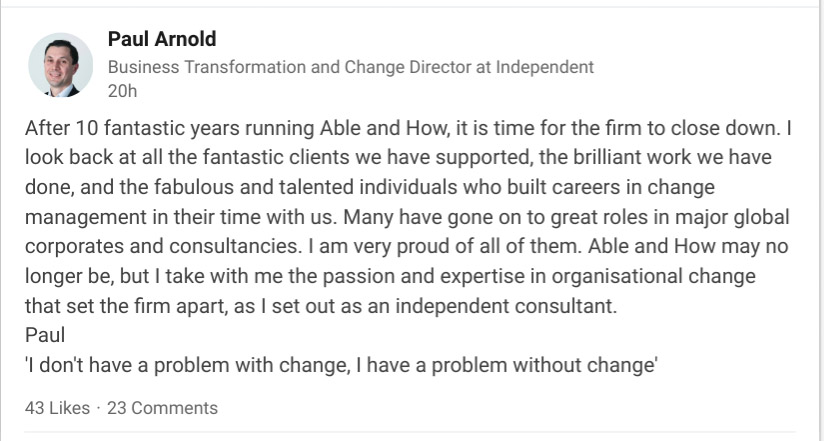
- Rachel Miller: What training 400 internal comms pros has taught me (6 September)
‘We need to be subject matter experts in so many areas – from leadership comms to apps and communicating change. Comms pros are willing and able to expand their knowledge to benefit themselves and their organisations. It’s hard to admit we don’t know everything we need to, which is why asking for help is smart.’ - Lindsay Narey: Workplace by Facebook – this much I know (5 September)
‘The slow but sure demise of the panic-stricken ‘WE NEED AN ALL STAFF EMAIL!’ requests for classic broken toilet/car park chaos type messages is a particular highlight. That type of news is gradually finding a more suitable home in our office/location specific Workplace groups.’ - Saskia Jones: Communicating From the Inside Out (4 September)
‘Word-of-mouth marketing still trumps company marketing. An employee advocacy programme means your marketing messages can reach far and wide through employee’s personal networks.’ - Jenni Kampf: Being SMART (4 September)
‘In my job, I create communications plans with SMART (Specific, Measurable, Achievable, Realistic, and Timely) goals – so have started to apply this approach to the rest of my life. Having a plan and specific actions (with timescales) helps to focus my mind.’ - Krishan Lathigra: 9 questions with… (3 September)
‘It was a nightmare trying to get an internal comms role. Nobody was willing to take a chance on me. It made me even more determined to succeed. I studied for a CIPR qualification, built IC knowledge at events and while Head of Research at the FCO I volunteered for IC projects.’ - Steve Doswell: Coffee, comms and Coventry: a day as a senior internal communicator (3 September)
‘Lured into email, I respond to an enquiry about our recent all-employee events – 500 people per day over two days at the Ricoh Arena. Pause to remember the sense of awe at the sheer scale of the event, the stress during the build-up, and feelings of euphoria when it was over.’
Media and digital
- Dan Slee: VIDEO LIST: 30 things I know after helping train more than 2,000 people on how to plan, shoot, edit and post effective video (7 September)
‘You need to know that mobile phones sold in 2018 shoot broadcast quality footage.’ - Stephen Waddington: How to use owned media (4 September)
‘Owned media is arguably the most compelling form of media in the paid, earned, shared and owned (PESO) model. It’s dependable because it’s completely within the control of an organisation to produce and publish or broadcast.’ - Marcel Klebba with Daryl Willcox: Celebrating 10th anniversary of TechJPR: UK’s top community for tech journalists and PRs (4 September)
‘I don’t think you can define the relationship between journalists and PR professionals without over-simplifying and I am not sure there is much use in that.’ - Stuart Bruce: How PR and SEO work together and why you don’t need a link (3 September)
‘Today just about every SEO firm claims to do PR. They’ve often got a very shaky grasp of what public relations is, but they claim to do it all the same.’ - Chris Lee: Copy Catch: What do do if someone plagiarises your work online (no date)
‘I read about a whole book on GDPR that had been pulled by its publisher because of complaints of alleged basic errors and plagiarised copy.’ - John Brown: Journalism v PR is the wrong battle to face [vlog] (31 August)
‘The New Statesman article ends with a bizarre phrase that ‘PR is winning’. Winning against whom and against what?’